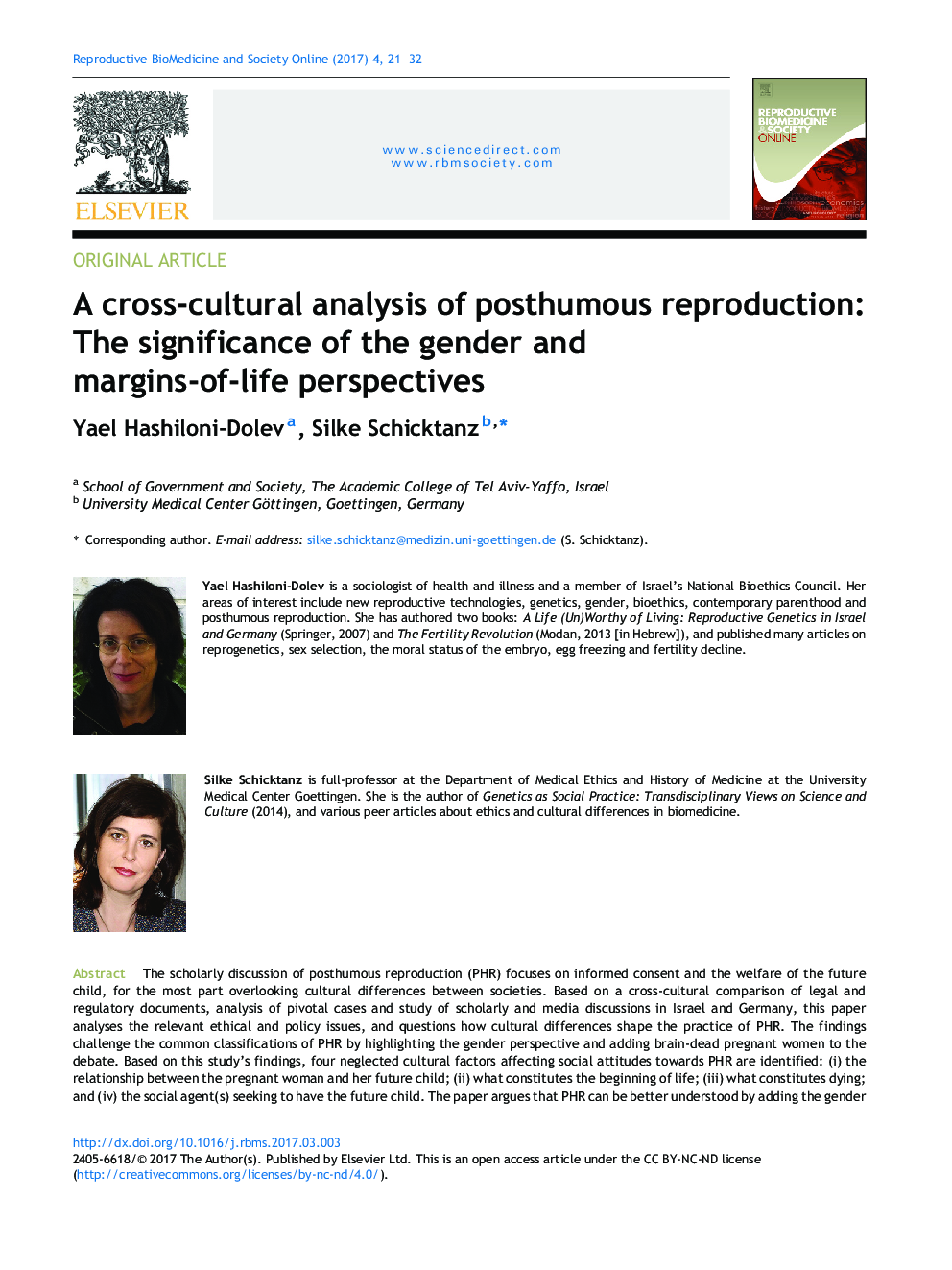| Article ID | Journal | Published Year | Pages | File Type |
|---|---|---|---|---|
| 5123117 | Reproductive Biomedicine & Society Online | 2017 | 12 Pages |
The scholarly discussion of posthumous reproduction (PHR) focuses on informed consent and the welfare of the future child, for the most part overlooking cultural differences between societies. Based on a cross-cultural comparison of legal and regulatory documents, analysis of pivotal cases and study of scholarly and media discussions in Israel and Germany, this paper analyses the relevant ethical and policy issues, and questions how cultural differences shape the practice of PHR. The findings challenge the common classifications of PHR by highlighting the gender perspective and adding brain-dead pregnant women to the debate. Based on this study's findings, four neglected cultural factors affecting social attitudes towards PHR are identified: (i) the relationship between the pregnant woman and her future child; (ii) what constitutes the beginning of life; (iii) what constitutes dying; and (iv) the social agent(s) seeking to have the future child. The paper argues that PHR can be better understood by adding the gender and margins-of-life perspectives, and that future ethical and practical discussions of this issue could benefit from the criteria emerging from this cross-cultural analysis.
